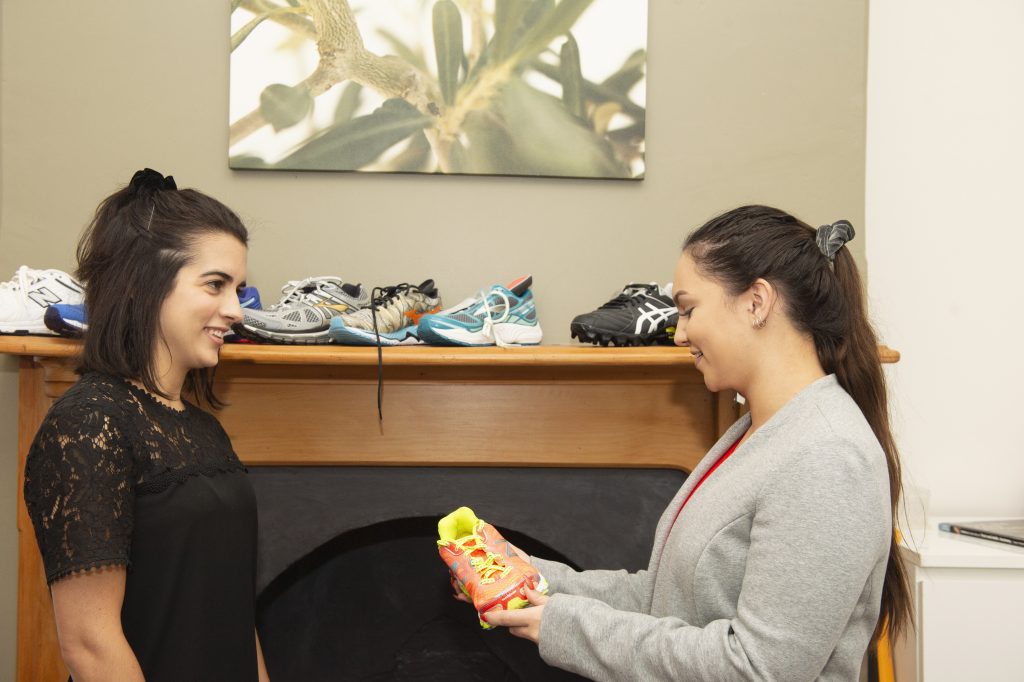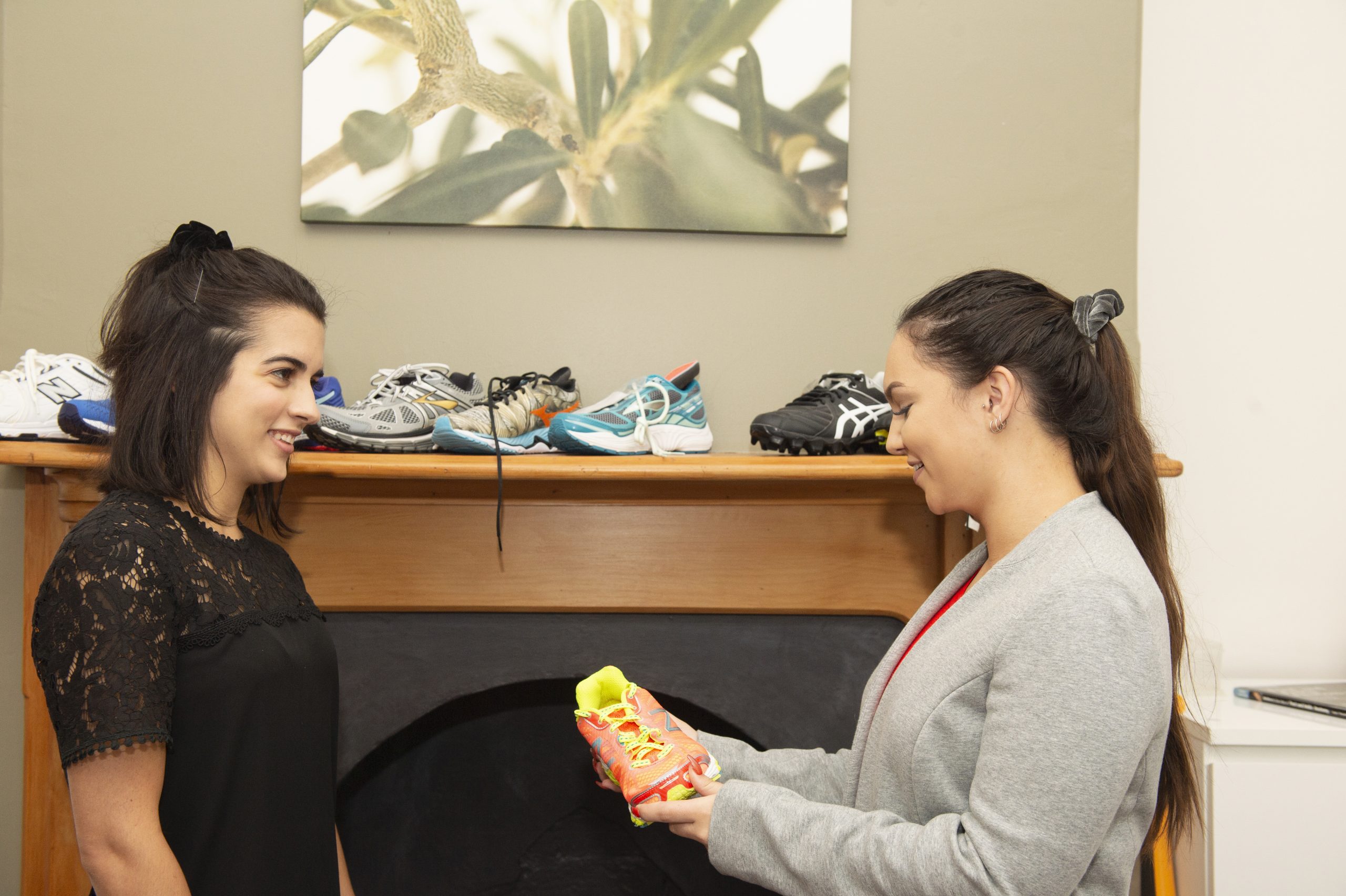The well-being and comfort of your feet are profoundly influenced by the choices you make when it comes to footwear. Whether you’re a dedicated athlete, spend extended periods on your feet, or have a desk job, recognising the significance of selecting appropriate footwear is crucial. Your shoes play a vital role in preventing foot conditions, maintaining hygiene, and ensuring optimal foot alignment and posture. In this article, we will explore why choosing the right shoes is essential for maintaining healthy feet and provide practical tips for selecting footwear that supports your foot health.
Understanding Foot Mechanics
Understanding the biomechanics of your feet, such as pronation, supination, and the importance of arch support, is important for selecting appropriate footwear. Pronation refers to the inward rolling of the foot, and excessive pronation which occurs in flat feet can lead to imbalances and discomfort. Supination, on the other hand, is the outward rolling motion of the foot, which can result in inadequate shock absorption in a high arch foot. Considering your foot’s natural movements and selecting shoes that provide proper support and alignment can help prevent injuries and promote optimal foot health during different activities.
Impact of Improper Footwear
Improper footwear can have detrimental effects on foot health, exacerbating preventable issues and increasing the risk of injuries. When shoes don’t fit properly, they can create pressure points and friction, leading to the formation of corns, calluses, and painful blisters. On the other hand, shoes that are too loose or provide inadequate support can contribute to instability, which can lead to ankle sprains and other injuries.

Finding the Appropriate Fit
When it comes to choosing the right shoes, considering factors like size, width, and toe box space is crucial for optimal comfort and foot health. A handy trick to assess if your shoes are appropriately sized is to remove the insole and step onto it. If your foot extends beyond the boundaries of the insole, it is a clear indication that the shoe may be too narrow or small for you. In such cases, exploring extra-wide options for specific shoe types might be necessary.
Arch Support and Cushioning
Footwear plays a pivotal role in offering crucial cushioning and arch support for individuals who require it. In people with flat feet, the use of motion-control shoes is helpful in providing stability and helping to counteract overpronation, ensuring more support. On the other hand, individuals with a supinated foot will benefit from improved cushioning by opting for neutral shoes. These shoes provide the necessary flexibility and cushioning to enhance shock absorption and promote a more natural gait.
Shoe Materials and Breathability
Choosing the right material for your footwear is crucial for maintaining foot health and preventing issues like excessive moisture and fungal infections. Mesh materials, known for their lightweight and breathable nature, are excellent for ensuring proper ventilation and reducing moisture buildup. However, it’s important to note that mesh shoes may wear down quickly when used during high-intensity activities involving extensive side-to-side movement, such as tennis.
On the other hand, leather shoes offer water resistance and durability. However, these shoes can be more expensive, have limited style options, and may present challenges when exposed to prolonged water immersion. By understanding the pros and cons of different footwear materials, you can make informed decisions based on your specific needs and activities to maintain both style and foot health.
Activity-Specific Footwear
When it comes to footwear, matching the right shoes to the activity you’re engaging in is key. Each activity demands specific features and support, ensuring optimal performance and minimising the risk of injuries. For example, running shoes excel in providing shock absorption in the midsole, responsive cushioning, and breathable uppers, all of which contribute to an efficient running experience. However, running shoes may not offer the same level of ankle support or lateral stability needed for sports like basketball or tennis, where quick side-to-side movements are frequent. That’s why it’s vital to consider specialized footwear designed explicitly for the activity you’re undertaking. By investing in activity-specific shoes, you can enhance your performance and protect your feet.
Regular Shoe Maintenance
To maintain the longevity and functionality of your footwear, it is important to practice regular care and maintenance. Clean your shoes regularly by removing dirt using a soft brush or cloth. Placing it in the washing machine will damage the integrity of the shoe and thus should be avoided. Replace worn-out or damaged shoes as needed to ensure proper support and reduce the risk of foot problems. Taking these steps will help preserve your shoes, extend their lifespan, and support optimal foot health.
Understanding the significance of wearing proper footwear and making informed choices can have a profound impact on the health and well-being of your feet. However, it is important to remember that not all shoes recommended in shoe shops may be suitable if you have a specific foot problem. It is recommended to consult with a podiatrist for an assessment, as they can provide professional recommendations based on your lower limb conditions. This ensures that you choose the right shoes tailored to fit your specific needs which will thereby enhance the overall well-being of your feet.
To book a foot or ankle assessment, please contact Southwest Foot and Ankle Centre today on (08) 9791 1319 or by booking an appointment online!








